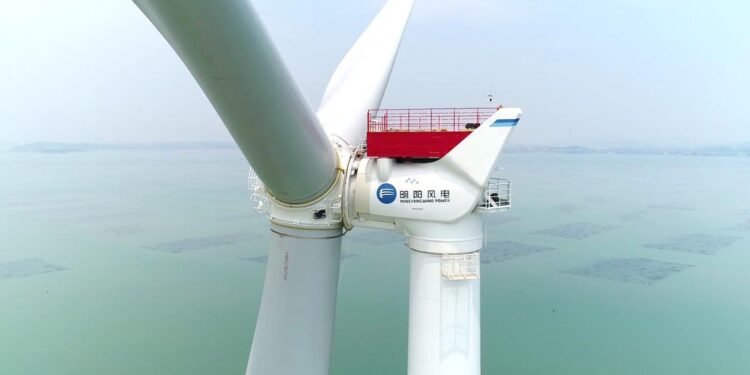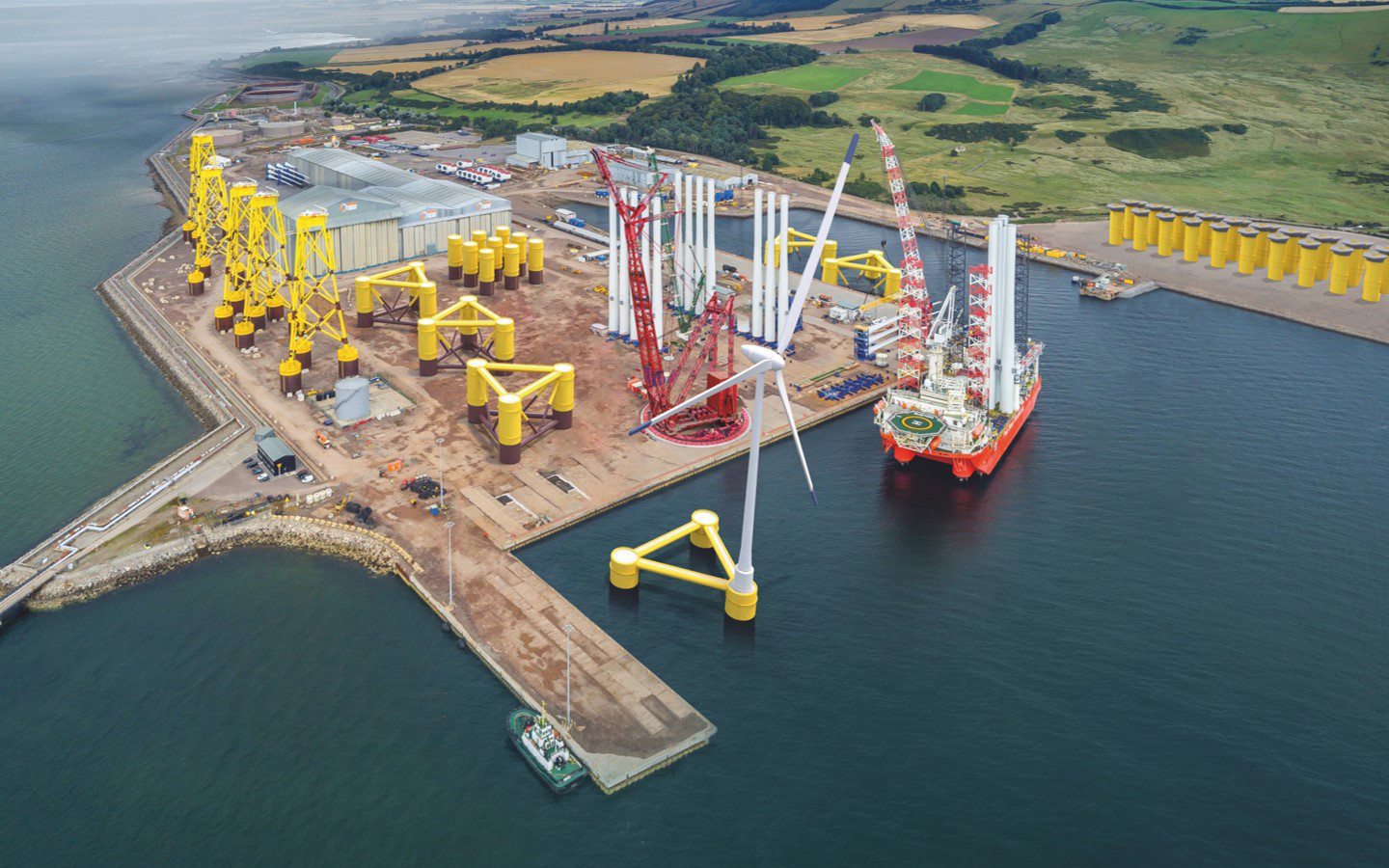The chairman of the UK Labour government’s publicly-owned GB Energy says the company will be “unapologetically long-term’ in its approach to investment.
Speaking at the Scottish Offshore Wind Conference in Glasgow, Juergen Maier said GB Energy will be a “national energy champion” for the UK, but he warned it “can’t solve all of the policy challenges”.
He also said ignoring potential investment from Chinese firm Mingyang, which is exploring building a turbine facility in Scotland, “would be crazy”, and urged the renewable energy industry to increase engagement with communities to combat net zero “naysayers”.
What will GB Energy do?
Since its establishment last year, questions have been raised about the exact role GB Energy will play in the UK energy sector and how the company will operate, as well as how many jobs it will create.
Prior to the election, Prime Minister Sir Keir Starmer said floating wind will be the “priority” for GB Energy.
But there have also been calls for the company to invest its initial £8.3 billion budget in other sectors including green hydrogen, tidal energy and long duration energy storage.
While Labour has made GB Energy a central component of its political messaging, Maier reiterated he himself is not politician.
“I am heading and building a state-owned, arm’s length independent energy body, which is different to being a politician,” he said.
“We have a strong role to play in that [policy discussion]… but we can’t solve all of the policy challenges.”
The former chief executive of Siemens Energy UK said GB Energy will invest “very strategically” and be “unapologetically long-term” in its approach.
“That is the role of Great British Energy, we want to be here in 20 years’ time, and who knows how many governments we might have at home in that period,” he said.
“We are going to be here for the long term, and we will work to build the clean power system that we want to build, obviously initially focused on 2030, and then beyond.”
GB Energy will ‘drive investment’
Maier said GB Energy will help drive investment “into where we see the key gaps are”.
He listed long duration energy storage and the emerging floating wind sector as priorities, but he said initially GB Energy will focus on co-investment in projects.
“We’re going to invest, and we’re going to co-invest because at £8.3bn we’re not going to own a lot of renewable energy assets,” Maier said.
“Again, don’t get me wrong, long-term that’s what we would like to have. I think every nation deserves its energy champion that owns its own [assets] and generates some of its own power.
“But we’re going to get there slowly, and initially we’re going to co-invest with the private sector in order to get some of these projects off the line.”
UK needs to figure out its ‘real strengths’
Maier also sees GB Energy playing a role as a “convener” between the industry and bodies like the National Energy System Operator (NESO) and National Grid, as well as innovation bodies like Aberdeen’s Net Zero Technology Centre (NZTC) and the ORE Catapult.
“We’re not a policy set-up, but I do think we can be a policy influencer,” he said.
While the UK has done well in identifying clusters of opportunity in areas like the north-east of Scotland and the Humber, Maier said the country needs to figure out “where our real strengths are going to be”.
“I don’t think we’re going to be bringing a lot of what we don’t currently have in traditional fixed offshore wind to this country,” he said.
“Are we going to get nacelle manufacturing here to the UK? Maybe, but probably not.
“So, I would argue [that the UK should] work out where we can innovate in order to bring new supply chains for the new technologies, or new ways of doing things in the existing [markets] here.”
Mingyang and Chinese investment
Asked about Chinese investment in Scotland’s offshore wind sector, Maier said the UK should focus on a “modern industrial strategy” rather than the “protectionist practices” of the 1970s.
“We’re talking about the role of government and private sector collaboration to create the best possible environment for local companies to innovate, out-innovate and be globally competitive, and the rest is for open competition.”
However, Maier said an exception is where the government determines there is a national security issue, “but other than that, it’s open for business and to ignore China would be crazy”.
Maier’s comments on Chinese investment were echoed by the UK managing director of floating wind developer Blue Float Energy Nadara Partnership.
Susie Lind said the UK “should be open for business” when it comes to Chinese investment.
“This is a global issue that we’re tackling in climate change,” Lind said.
“I don’t believe that being open to Chinese turbines or any other components means that we have to dilute our standards, and it is very clear and internationally recognised standards that we would expect as developers from any suppliers.”
Decision ‘crucial’ on Mingyang facility
Lind said it is “crucial” that the UK and Scottish governments make their expectations around Chinese investment clear to the wind industry in order to “move this forward very quickly”.
“Because there’s a chance that time is of the essence, we need certainty,” Lind added.
“We need to make sure that we’re getting on and building the key infrastructure that’s going to enable some suppliers to form a local base.”
Lind said ensuring “meaningful, local content” will help the wind industry provided economic opportunities for Scottish communities.
“Transforming lives, transforming rural and coastal communities, so that actually, unlike in some ways with oil and gas, this transition really feels like it’s for the benefit of communities that host them,” Lind said.
Recommended for you



 © Supplied by DESNZ
© Supplied by DESNZ © Supplied by Ross Creative Commun
© Supplied by Ross Creative Commun






